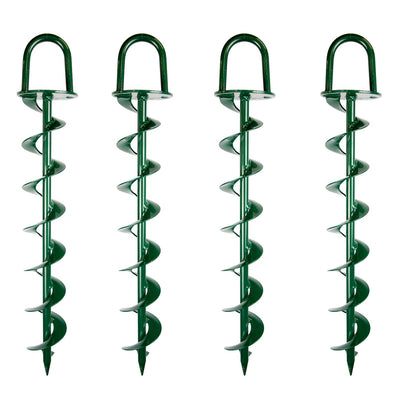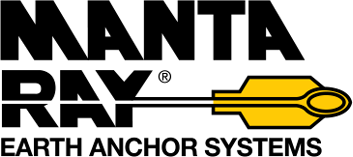Security Experts Give Advice on the Best Ground Anchor Solutions
Security Experts Give Advice on the Best Ground Anchor Solutions
Blog Article
Check Out the Various Types of Ground Anchor for Your Next Project
When beginning on a building and construction or landscape design task, comprehending the different sorts of ground anchors readily available is vital to making certain both stability and durability (Ground Anchor). From auger supports, which master diverse soil conditions, to stake anchors made for short-term installments, the options are various. Furthermore, concrete and screw supports present distinct benefits in particular situations, while deadman anchors are tailored for applications calling for resistance to side pressures. The selection of an ideal anchor kind can considerably influence the general success of your project, motivating more exploration right into their particular advantages and applications.

Auger Anchors
Auger anchors are a preferred option in numerous building and landscape design tasks as a result of their distinct design and reliable securing capabilities. These supports include a helical screw-like shaft that is driven right into the ground, enabling a safe and secure and stable hold. The spiral style facilitates simple installation and maximizes resistance versus lateral forces, making auger supports especially reliable in applications such as secure fencing, momentary frameworks, and disintegration control.
The setup process of auger anchors is relatively straightforward. They can be manually or mechanically installed, depending upon the size and required deepness. This flexibility enables their use in varied dirt conditions, from sandy to clayey terrains. Auger anchors can be conveniently gotten rid of and recycled, which includes to their cost-effectiveness and sustainability.
Among the substantial benefits of auger supports is their capacity to distribute tons evenly throughout the surrounding dirt, decreasing the danger of soil disturbance and reducing environmental effect. In addition, they are less prone to heaving or loosening up with time compared to conventional anchoring approaches. Auger anchors are an excellent choice for projects needing sturdy and dependable anchoring services.

Risk Anchors
When it comes to protecting structures in a variety of exterior applications, stake anchors provide a reputable and simple remedy. These supports are usually constructed from sturdy materials such as steel or aluminum, designed to endure ecological stress and anxieties while providing ideal security. Their easy design permits quick installment, making them an optimal choice for short-term or irreversible anchoring demands.
Risk supports are specifically helpful in protecting outdoors tents, canopies, and other lightweight structures versus wind and weather. They function by being driven right into the ground at an angle, developing a solid hold that resists pull-out forces - Ground Anchor. The performance of risk anchors depends on a number of elements, consisting of soil kind, moisture material, and the angle of installment
For included protection, several stake supports feature add-on factors for straps or ropes, enabling stress modifications as required. In applications such as landscape design or building and construction, they can properly stabilize equipment or structures on uneven surface. In general, stake supports offer a cost-efficient and flexible solution for safeguarding different exterior installations, making them a preferred option for contractors and do it yourself lovers alike.
Concrete Anchors
Concrete supports offer a durable solution for protecting frameworks to concrete surface areas, guaranteeing stability and safety in numerous applications. These supports are crucial for jobs varying from property constructions to large commercial installments. They come in different kinds, including expansion anchors, adhesive anchors, and undercut supports, each developed for details tons needs and ecological problems.
Development anchors depend on mechanical devices to grasp the concrete when installed. They are suitable for medium to sturdy applications. Sticky anchors utilize high-strength epoxy or material to bond the support to the concrete, offering premium load-bearing capabilities, particularly in fractured concrete situations. Undercut supports create a special form within the concrete, giving outstanding holding power, specifically in applications where tensile loads prevail.
When performed correctly, concrete anchors substantially enhance the structural stability of numerous jobs, making them essential in modern-day building and construction techniques. Comprehending the certain demands of your project will assist in selecting the ideal kind of concrete support for the job.
Screw Anchors

Screw supports are a flexible attaching solution that can be successfully utilized in a selection of applications where typical concrete anchors may not be enough. These anchors include a helical style that enables them to be easily driven right into the ground, making them ideal for usage in dirt and various other substrates. Their unique framework supplies excellent holding power and resistance to pull-out forces, making them ideal for numerous projects, from landscaping to architectural support.
Among the key advantages of screw supports is their simplicity of setup. They need marginal devices and can often be installed without the need for excavation, which conserves both time and labor expenses. Additionally, screw supports can be removed and recycled, using a sustainable remedy for momentary applications.
Screw anchors are specifically beneficial in locations where soil problems are testing, such as sandy or loose dirts. Their capability to be installed at differing midsts permits modification based upon specific task needs. In general, screw supports supply a effective and trusted anchoring approach, making them an exceptional choice for engineers and specialists looking for efficient solutions for their projects.
Deadman Anchors
Deadman anchors act as a robust solution for supporting frameworks in challenging problems, specifically where typical anchoring approaches might fail. These anchors include huge, heavy items buried underground, which develop resistance against side forces. The design normally involves a straight component, such as a block of concrete or a steel plate, buried in the dirt, to which cable televisions or straps are connected.
The efficiency of deadman anchors hinges on their capacity to distribute loads over a bigger location, reducing the threat of failing this link in unpredictable dirt conditions. They are especially valuable in applications such as maintaining walls, temporary structures, and slope stablizing, where dirt activity can jeopardize the honesty of the structure.
Installment of deadman anchors calls for careful preparation to ensure they are positioned at the right depth and positioning, optimizing their load-bearing capability. While they might require more labor and product than light-weight anchors, their integrity in negative conditions makes them indispensable for long-term tasks. Furthermore, deadman anchors are flexible and can be adjusted to different applications, making them a go-to option for engineers dealing with distinct difficulties in their tasks.
Final Thought
In recap, selecting the ideal type of ground anchor is important for making sure security and security in different projects. Auger supports master diverse soil problems, while stake supports fit momentary applications. For concrete surfaces, growth and adhesive anchors offer reputable choices, and screw anchors offer flexibility in tough surfaces. Deadman supports are especially reliable in withstanding side forces for retaining walls. Mindful factor to consider of these choices will enhance job visit results and architectural integrity.
Additionally, concrete and screw supports present unique advantages in certain scenarios, while deadman anchors are customized for applications requiring resistance to side pressures - Ground Anchor.Auger anchors are a preferred choice in different building and construction and landscaping jobs due to their unique style and reliable anchoring abilities. They come in various types, including expansion anchors, glue supports, and undercut anchors, each designed for particular lots needs and environmental problems
Glue see post supports make use of high-strength epoxy or material to bond the anchor to the concrete, using superior load-bearing capabilities, especially in broken concrete situations. Generally, screw supports provide a effective and trustworthy securing technique, making them an exceptional option for specialists and designers seeking efficient remedies for their jobs.
Report this page